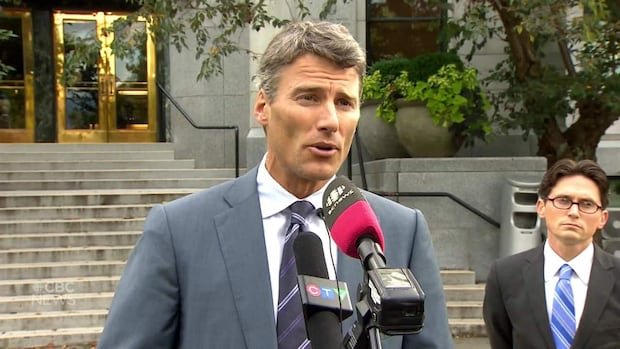Coquitlam and Abbotsford are just two B.C. cities where dozens of people are trying to survive outside in tents, holding on and hoping for better.
“Why do I live here?” said Ledora Napoleon from the tent encampment at Abbotsford city hall. “Because it’s so hard to find housing in Abbotsford.”
She last lived in conventional housing seven months ago, says she’s been evicted several times and faces discrimination because of being on disability or income assistance.
“I feel like I’ve been blacklisted,” she said, acknowledging living in a tent encampment is her best option at present.
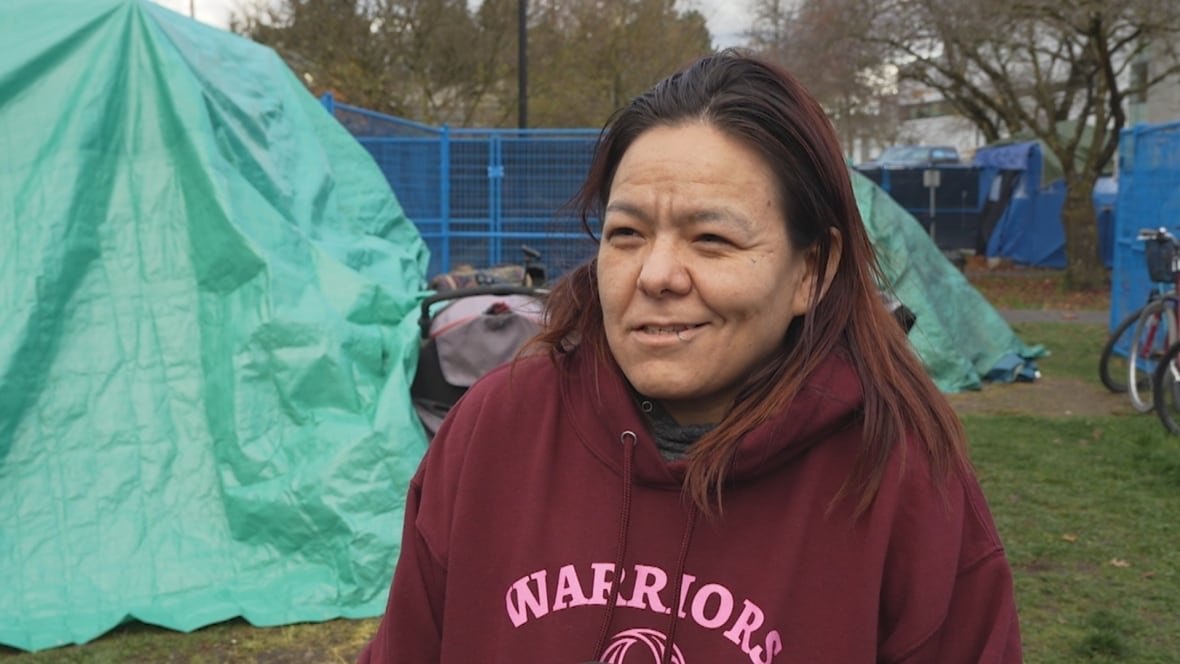
Tent encampments in B.C. appear to be an unsolvable, circular problem that pits concerns over public safety and access to public spaces against the support and resources needed to provide housing that’s appropriate for vulnerable people, many of whom have complex needs.
Some people favour forcibly breaking up camps with the support of the courts, but serial dismantling most often has the same encampments relocate. Others call for patience to keep encampment residents safe until they can be paired with supportive housing that addresses the root causes of homelessness, such as poverty, toxic drugs, racism and colonialism.
Abbotsford’s mayor says the city is trying to get it right, prioritizing the rights and needs of camp residents.
The tent encampment in Abbotsford is, in part, a protest over the city’s history with unhoused people. A decade ago, chicken manure was spread in an attempt to move encampment residents along.
Ross Siemens acknowledges past decisions haunt perceptions in the community.
“Yes, I’m still dealing with some of that aftermath,” said the mayor. “That’s not who we are as a city, and it never has been.”
Siemens says the city uses the resources it has, such as bylaw officers, police and firefighters, to ensure public safety at the site and support outreach workers.
Camp residents, though, want a designated space on unused city land where they can stay indefinitely with facilities such as potable water and appropriate washrooms.
“So we’re going to stay here as long as it takes to get awarded that piece of land,” said Abbotsford city hall tent encampment resident Jenny Robbins. “We’re all together. We take care of each other, and then we don’t have to be in anyone’s way.”
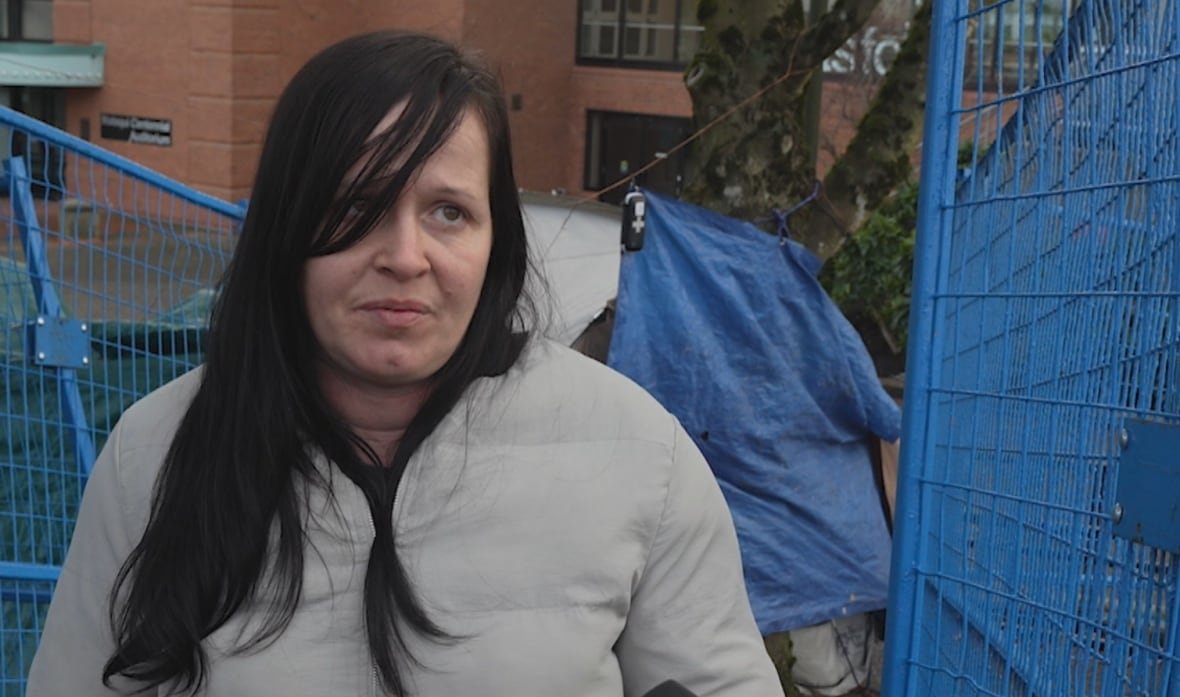
Municipalities like Abbotsford and Coquitlam, which has had a tent encampment outside its shelter on Gordon Avenue for the past six months, say their focus is to find the funding to pay for the help camp residents need.
That’s part of a bigger systematic problem between what cities are traditionally responsible for and what’s needed to solve homelessness.
Civic property taxes are most often used for managing waste, policing and fire suppression and providing parks and recreation. Now those dollars are being stretched to provide housing and health services.
Coquitlam Coun. Craig Hodge, along with Siemens, defines those things as provincial and federal responsibilities.
“We’re trying to do what we can … but we really need help from the province to try to meet the needs here,” said Hodge.
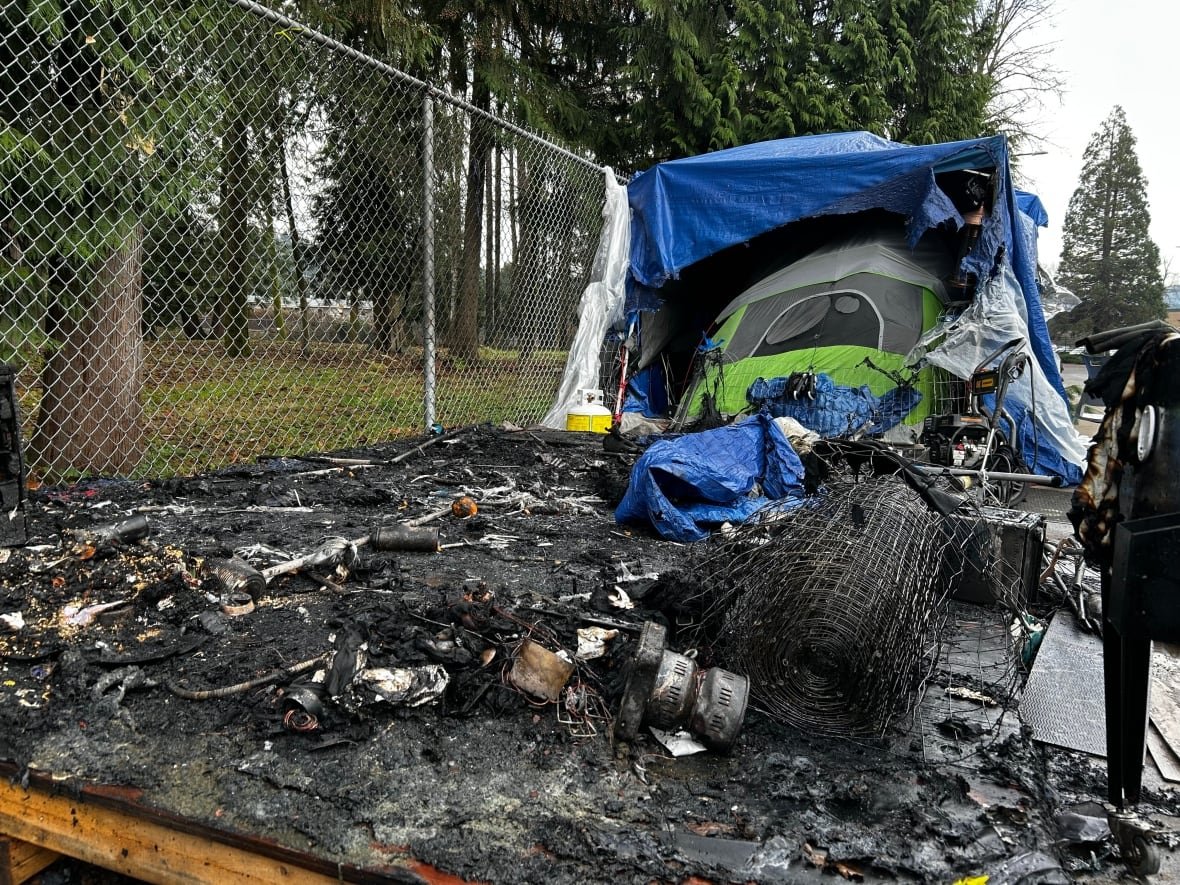
Both politicians say they face pressure from people in their communities who simply want the camps and people in them removed.
“We hear concerns from our residents about their safety,” said Hodge. “Quite frankly, I’m worried about the safety of the people that are here living on the street.”
In October, Abbotsford successfully defended in court its right to use its bylaws to break up its camp, but it came with conditions.
Abbotsford could not step in to remove the camp unless adequate shelter options, including access to harm reduction services, were available.
Siemens said the city is challenging that part of the ruling because it would have Abbotsford assume what he says is a provincial responsibility.
Still, he doesn’t want the issue to come down to jurisdictional finger-pointing.
“It’s very easy for us to just cross our arms and say it’s somebody else’s responsibility,” he said. “At the end of the day, these are still human beings that need help.”
Siemens wants camp residents to accept supports being offered currently and leave the tent encampment behind as his council works with other levels of government.
“It might not be the perfect housing that you want, but it’s it’s a place indoors, it’s safe, and then work on the next steps in your life.”
Belonging in B.C. plan
The province has a plan to help with this called Belonging in B.C.
In 2022, the province committed $633 million over three years for it to offer people a pathway out of homelessness, through shelter first and assessment and then a move into housing options that best meet individual needs.
The province, through B.C. Housing, funds 6,118 shelter spaces in 59 communities, said a provincial official.
Homelessness in places like Metro Vancouver is increasing, however.
To help try to reverse that trend, this year’s federal budget allocated $250 million to provide more shelter spaces, transitional homes and services to help those in encampments find housing with matching provincial funding.
Stepan Wood with UBC’s Allard School of Law hopes increased spending and a more nuanced approach to tent encampments will make a difference in resolving them more equitably.
He studied how courts from 2000-2022 ruled on government-sought injunctions to break up camps. In recent years judges have granted fewer injunctions in favour of “a more sensitive, balanced approach to homeless encampments,” such as the Abbotsford ruling.
Meaningful engagement must replace forced evictions in encampment responses. The Advocate’s report underscores the importance of involving encampment residents in designing alternatives. We must prioritize their voices for lasting solutions. More ➡️ <a href=”https://t.co/leFyazVFHm”>https://t.co/leFyazVFHm</a> <a href=”https://t.co/8T0Fnf5JqW”>pic.twitter.com/8T0Fnf5JqW</a>
—@HousingLogement
Wood wants all levels of government to follow the direction of the federal housing advocate under Canada’s human rights commission, which in February issued a report reviewing homeless encampments.
Its core recommendations were to make sure camps have basic necessities, end forced evictions, and come up with a properly funded all-government response.
Under this lens, Wood’s critical of officials in Vancouver over what he described as a “chipping away” of a legal encampment at CRAB Park over the course of three and half years that ended with residents moving on, but not necessarily with housing and services matched to their needs.
“I think it’s a cautionary tale of how cities can get things wrong, ” he said.
From 2014, there have been around 10 different tent encampments in Vancouver in various locations.
This week the City of Vancouver began a co-ordinated effort with the police to remove an encampment from the Downtown Eastside neighbourhood, after officials cited public safety concerns and an increase in the number of fires in the area. It’s far from the first time a removal like this has happened.
Back in Coquitlam, Kimberlee Kirton was one of the first people to set up a tent outside of the shelter because she thought it would be the safest place to be while lacking conventional housing.
Kirton who has struggled with homelessness for 26 years, now has a spot inside the Coquitlam shelter. It can’t provide all the services she needs for her health and addictions, but she’s trying to find them elsewhere.
“Something I’ve been trying to do for months now,” she said.
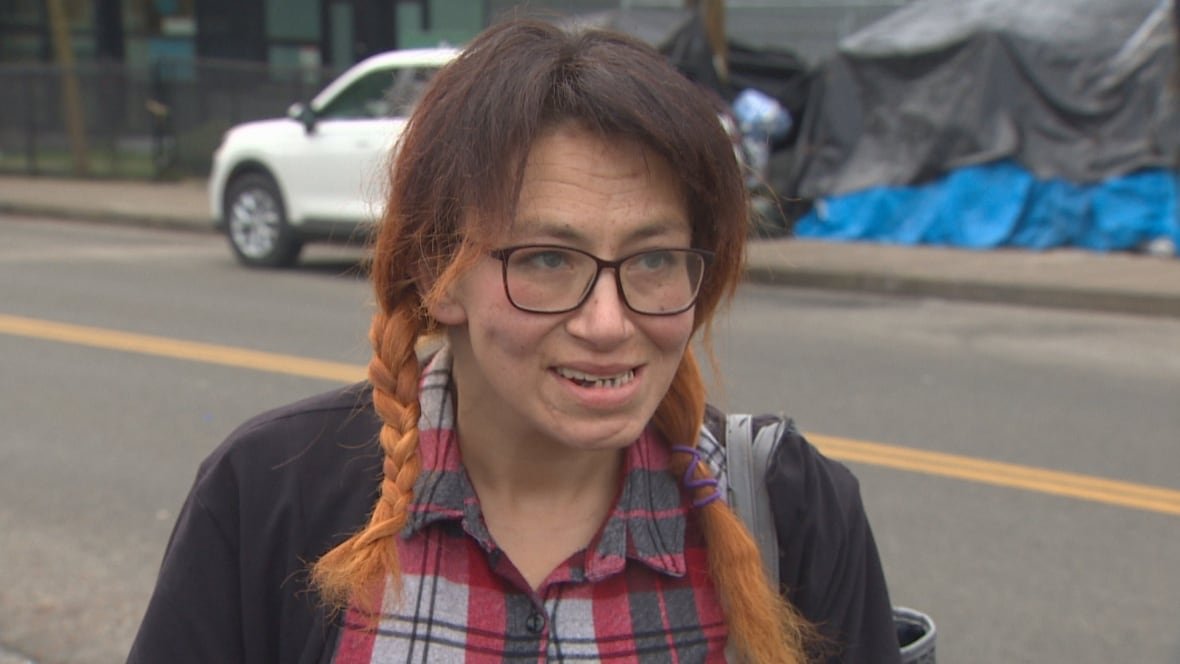
Kirton’s mother Sharon Sinclair, who checks on her daughter every few days, is calling on government officials to listen to what people living in tent encampments say they need, find ways to provide it and not move them on in the absence of a better option.
“Build more affordable housing. Build more programs for these people. They need help.”


